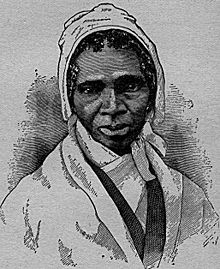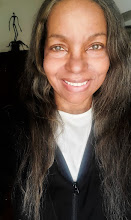African American Track Star, Jesse Owens, won four gold medals at the 1936 Berlin Olympics, and won a victory for civil rights.
Jesse Owens
1936 Berlin Olympics
|
The 1936 Olympics belonged to track and field star, Jesse Owens, who hoped his track and field victories would change race relations in America.
With all that gold being earned at the 2016 Summer Olympics in Rio, we should remember the first African Americans to win Olympic gold medals, lest we forget who fought Jim Crow in sports and helped lay the groundwork for black gold medalists in the 2016 Summer Olympic in Rio.
After Jesse Owens' victories, British radio and newspapers fueled racism by circulating a rumor that lives on to this day claiming that Hitler snubbed Owens after his Olympic victories.
Back in 1929, the all-black school, Tuskegee Institute, now Tuskegee University, had started one of the first women's track and field teams in the United States. In 1932, Tydie Pickett and Louise Stokes qualified for the Los Angeles Olympics on the 400-meter relay track team, but were replaced at the last minute by white runners they had beaten. Again in 1936, Pickett and Stokes qualified for the women's U.S. track and field team but Olympic officials replaced them at the last minute with white runners they had previously defeated. Some observers credit the change to racist Jim Crow laws in the United States. The U.S. blamed Hitler's regime for the Owens snub and U.S. civil rights groups blamed Jim Crow laws for the women's team replacements.
The dynamics of the Berlin Olympics were troublesome to U.S. race relations.
Jesse Owens had another impression of what happened in Germany. Owens said, "Hitler didn't snub me—it was [FDR] who snubbed me. The president (Franklin D. Roosevelt) didn't even send me a telegram,” quoted from the book, Triumph: The Untold Story of Jesse Owens and Hitler's Olympics by Jeremy Schaap, about the 1936 Olympics. Owens said he was treated well at the Berlin Olympics and that Hitler sent him an inscribed photograph to congratulate him on his victories. Years later, Owens' widow confirmed the account. [source: The Hitler Snub Myth, The New Stürmer, 2003]
by Jeremy Schaap, about the 1936 Olympics. Owens said he was treated well at the Berlin Olympics and that Hitler sent him an inscribed photograph to congratulate him on his victories. Years later, Owens' widow confirmed the account. [source: The Hitler Snub Myth, The New Stürmer, 2003]
 by Jeremy Schaap, about the 1936 Olympics. Owens said he was treated well at the Berlin Olympics and that Hitler sent him an inscribed photograph to congratulate him on his victories. Years later, Owens' widow confirmed the account. [source: The Hitler Snub Myth, The New Stürmer, 2003]
by Jeremy Schaap, about the 1936 Olympics. Owens said he was treated well at the Berlin Olympics and that Hitler sent him an inscribed photograph to congratulate him on his victories. Years later, Owens' widow confirmed the account. [source: The Hitler Snub Myth, The New Stürmer, 2003]
While in Berlin for the Olympics, Owens was not discriminated against by Jim Crow laws or separated from other athletes based on the color of his skin as Jim Crow laws required in the United States. Jesse Owens stayed in the same hotels, rode public trains, ate in restaurants and enjoyed friendships with white members of his own team and other international Olympians like Lutz Lang, German athletic star and European long-jump record holder.
Back home for a post-Olympic ceremony at New York's Waldorph Astoria Hotel, however, track and field star Jesse Owens was not permitted to stay in the hotel or eat in the hotel restaurant and was forced to use the hotel freight elevator so as not to be seen by white hotel guests.
Many people think the struggle for civil rights was unnecessary in northern states, especially New York, where race was not as much of an issue as it was in the South. However, northern U.S. states were slave states in early New England and continued a long and painful legacy of Jim Crow laws and treatment of African Americans, and other non-white groups and whites of a different ethnicity. The first slave auction held in New York took place in 1655, 300 years before Rosa Parks led the Montgomery Bus Boycott. Slaves in New York were not formally freed until 1827, ending bondage but not discrimination.
 |
| Sojourner Truth |
|
Rosa Parks and the Montgomery Bus Boycott (Lucent Library of Black History) |
Jesse Owens was born in Alabama in 1913, the same state and year as Rosa Parks. It would be easy to conclude that Rosa Parks and Jesse Owens may have experienced similar consequences of Jim Crow laws growing up and in adulthood.
Jesse Owens' U.S. Sports Ambassadorship included meeting with school, government and sports officials in India, Singapore, Malaysia and the Philippines, and talking to underprivileged school children in those countries and the U.S. Audrey Patterson, the first African American woman to win a medal in Olympics history said, she felt that 1936 Olympic gold medal winner, Jesse Owens, was speaking to her in 1944 when he told a group at her school, Gilbert Academy in New Orleans, "There is a boy or a girl in this audience who will go to the Olympics."
 Jesse Owens, 1958 Vice President Richard Nixon |
The year Jesse Owens was invited to the White House, 1955, was the same year that Rosa Parks ignited the Montgomery Bus boycott in Owens' home state of Alabama and officially kicked off the modern Civil Rights Movement with Martin Luther King being hurled into the spotlight on national television as the leader of the Civil Rights Movement, which eventually led to Martin Luther King's I Have a Dream Speech in Washington D.C. in 1963 during the Poor People's March. It took many years before the Civil Rights Movement accomplished it goals, and still, some goals seem unfulfilled.
Remember Jesse Owens for his Olympics victories and for his role in civil rights, although several decades passed before President Lyndon Johnson signed the 1964 Civil Rights Act and 1965 Voting Rights Act.
|
Hard Cover
Amazon Kindle
|
 |
Sunny Nash
Leading author on U.S. race relations, according to the Association of American University Presses
Sunny Nash writes books, blogs, articles and reviews, and produces media and images on U.S. history and contemporary American topics, ranging from Jim Crow laws to social media.
Sunny Nash is the author of Bigmama Didn't Shop At Woolworth's (Texas A&M University Press), about life with her part-Comanche grandmother during the Civil Rights Movement.
Sunny Nash is the author of Bigmama Didn't Shop At Woolworth's (Texas A&M University Press), about life with her part-Comanche grandmother during the Civil Rights Movement.
Nash’s book is recognized by the Association of American University Presses as essential for understanding U.S. race relations. Nash's book is also listed in the Bibliographic Guide for black studies at the Schomburg Center for Research in Black Culture in New York; and recommended for Native American collections by the Miami-Dade Public Library System in Florida.
Nash uses her book to conduct workshops, and write articles and blogs on race relations in America through topics relating to her life—music, film, early radio and television, entertainment, social media, Internet technology, publishing, journalism, sports, education, employment, the military, fashion, performing arts, literature, women's issues, adolescence and childhood, equal rights, social and political movements--past and present.
© 2016 Sunny Nash. All Rights Reserved Worldwide.
www.sunnynash.blogspot.com
~Thank You~



Small world :) I mentioned Jesse Owens in blogcatalog before I noticed that he was the subject of your current post.
ReplyDeleteA year and a half ago I was writing about Jesse Owens but more from the perspective of the Nazis' race theories. Many thanks for the link
Hels
http://melbourneblogger.blogspot.com.au/2013/11/adjusting-history-jesse-owens-and-nazi.html
Thank you for your comment. I have a couple of other historical Olympics stories planned for the next few days. Please stay tuned. Thanks again.
ReplyDelete